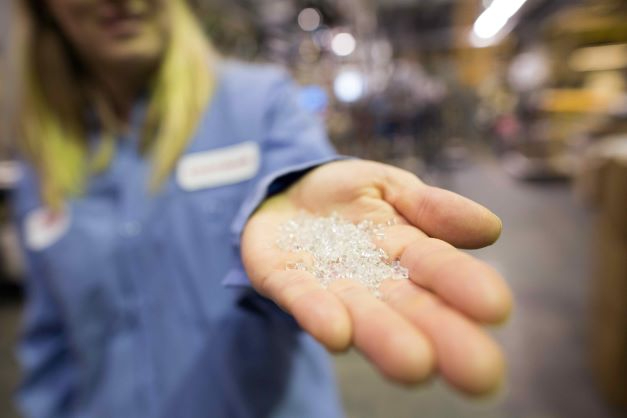

Eastman
American specialty materials maker, Eastman, proposes to invest up to US$1bn in a material-to-material molecular plastics recycling facility in France that is said to be the world’s largest and will recycle up to 160,000 metric tonnes per year using the company’s polyester renewal technology.
Eastman expects that by handling hard-to-recycle plastic waste that is presently being burnt, their proposed plastics recycling facility will help to speed the circular economy.
The company’s polyester renewal technology, according to the business, allows materials to have potentially unlimited value by keeping them in production lifecycle after lifecycle. This means that the facility will provide true circularity for difficult-to-recycle plastic garbage that is still part of the linear economy.
The technology works by breaking down difficult-to-recycle garbage into its molecular building blocks and reassembling the parts to create first-quality material without any compromise in performance.
By decreasing carbon emissions and enabling a circular economy, the project marks a long-term partnership between France and Eastman that will help the EU achieve its sustainability goals.
Mark Costa, Eastman CEO, said that the intention to develop the world’s largest plastics recycling facility in France is a crucial aspect of their entire circular economy strategy. Eastman is honored to work with the French government to support France’s and the EU’s strong ambitions. Eastman has established comparable, aggressive carbon and circular economy goals as France.
Units to prepare mixed plastic waste for processing, a methanolysis unit to depolymerize the waste, and polymer lines to manufacture a variety of high-quality materials for specialized, packaging, and textile applications are all part of the multi-phase project.
Eastman also intends to develop a molecular recycling innovation center, which it believes will help France take the lead in the circular economy. To reduce plastic waste incineration and keep fossil feedstock in the ground, the innovation center would promote alternate recycling processes and applications. By 2025, the plant and innovation center should be up and running, employing roughly 350 people and generating an additional 1,500 indirect jobs in recycling, energy, and infrastructure.
French Minister for ecological transition Barbara Pompili, said that accelerating the transition to a circular economy is one of the primary tasks in the years ahead. Eastman’s significant investment in France illustrates their country’s openness to adopt innovative technology that will assist us in achieving their ecological and economic goals by revolutionizing their country’s plastics recycling capabilities.
Ambercycle and Highsun Holding Group have signed a strategic cooperation agreement aimed at advancing textile-to-textile (T2T) closed-loop recycling systems.
PAIGE has partnered with the Cotton Lives On programme to launch a recycling campaign, encouraging customers to bring in old…
Toray Industries Inc. from Japan, has partnered with Head Sports GmbH to create the Boom Raw tennis racquet, a product…
Icon Denim LA is expanding its collection made entirely from organic cotton. The brand first introduced its 100% organic cotton…
EURATEX has signed a MoU with Tunisia’s textile trade union, FTTH, to strengthen collaboration in areas like innovation, sustainability, and…
Brightfiber Textiles has opened a new recycling plant in Amsterdam, turning locally collected secondhand clothes into high-quality textile fibres.